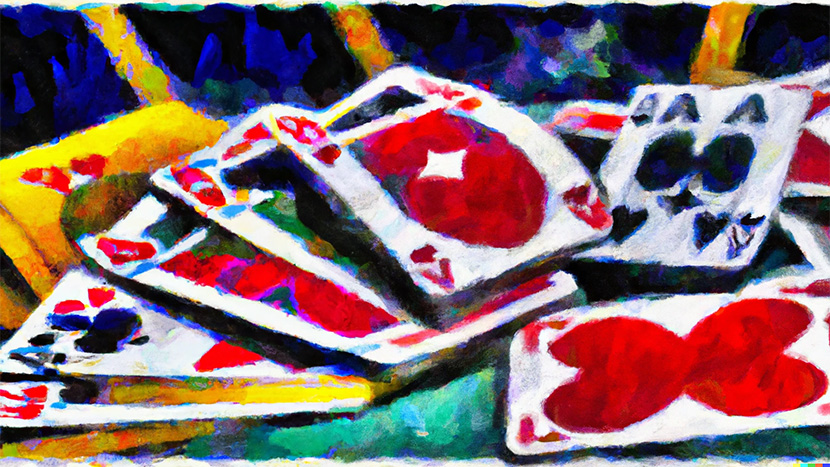Revising The Terms: Why Memory Is Important When Playing Casinos
A lot of card games that you can find today at land-based casinos and online casinos require players to put their memory skills to the test. Using your memory can help you make better decisions and, therefore, place more strategic bets that are more likely to return a profit. Here is a closer look at why memory is often regarded as being extremely important when playing at casinos.

Why memory is important at casinos
Working memory in the human brain is known to be important in times when you need to make quick decisions or implement certain strategies to give you more of an edge and potentially win games. Memory can, therefore, be used when playing certain card games at casinos, such as blackjack. Working memory can be described as the storing of auditory and visual memories for a temporary amount of time.
It can help memorise cards, for example, and although some people are better at using their memory than others, it can be a great tool if you can get better at using your working memory at casinos. Don’t forget that you need all the help you can get. It can also be beneficial in poker. Before you play poker, there are many terms you need to memorise, and learning the terminology can also give you more of an edge when playing other people. It’s also important to remember which cards have been dealt already, so you know which cards won’t be dealt for the rest of the game.
Popular poker terms you may want to remember your next casino visit
There are literally hundreds of different poker terms that you should try and learn, especially if you’re looking to play poker in the real money mode at either a land-based casino or an online poker site. It’s also essential that you try and learn the different ‘tells’ that people often subconsciously display when playing, which can also give you an edge over your rivals. Here are some of the most popular poker terms, phrases and expressions that you should be aware of:
- Ante – the betting chips that players must add to the pot in order to play in a round and before the cards can be dealt
- All-In – when a player places all of his or her chips into the pot
- Flop – the first three community cards that are dealt face-up for everyone to see and use
- Bad Beat – when a player with a hand that looks certain to win, often a high-value hand, is beaten by a hand that wouldn’t normally have won
- Blind – the two people sitting directly to the left of the deal are the first people to bet, and they must put in the small blind (first person) and the big blind (second person)
- Call – the number of chips required just to stay in the current hand
- Raise – when someone raises the current bet, which all other players must then call, raise, or fold)
- Fold – when a player no longer wishes to stay in the hand and must discard their cards face-down
- Kicker – a high card that determines a winner when players have similar hands
- Trips – this simply means three of the same card (e.g. 7-7-7, or Q-Q-Q)
- Under the Gun – the first person to act (sitting next to the dealer) after each new round of betting
- Royal flush – the best possible winning hand in poker (includes A-K-Q-J-10 of the SAME suit)
- River – the final card dealt of the five community cards
- Turn card – the fourth card (so the second from last card) dealt of the community cards

Other common poker terms that you also need to learn
Some of the other common poker terms that you also need to take the time to research and learn more about include the different winning hands, such as Pair, Straight, Flush, Straight Flush, and Full House, as well as terms like Tilt, Split Pot, Pocket Cards, Hole Cards, Limit, High Card, Hand, Draw, Check, Off-Suit, Limp, and Connector, to name just a few.
There are plenty of great sites out there today, such as the Ask Gamblers website, that goes into much more detail about today’s most common poker terms, which you should definitely take the time to look into, especially if you’re keen on learning how to play and be successful in poker. When playing poker for real money, remember to go in with a budget and stick to that budget. Never chase your losses, and try to have fun.
































































































